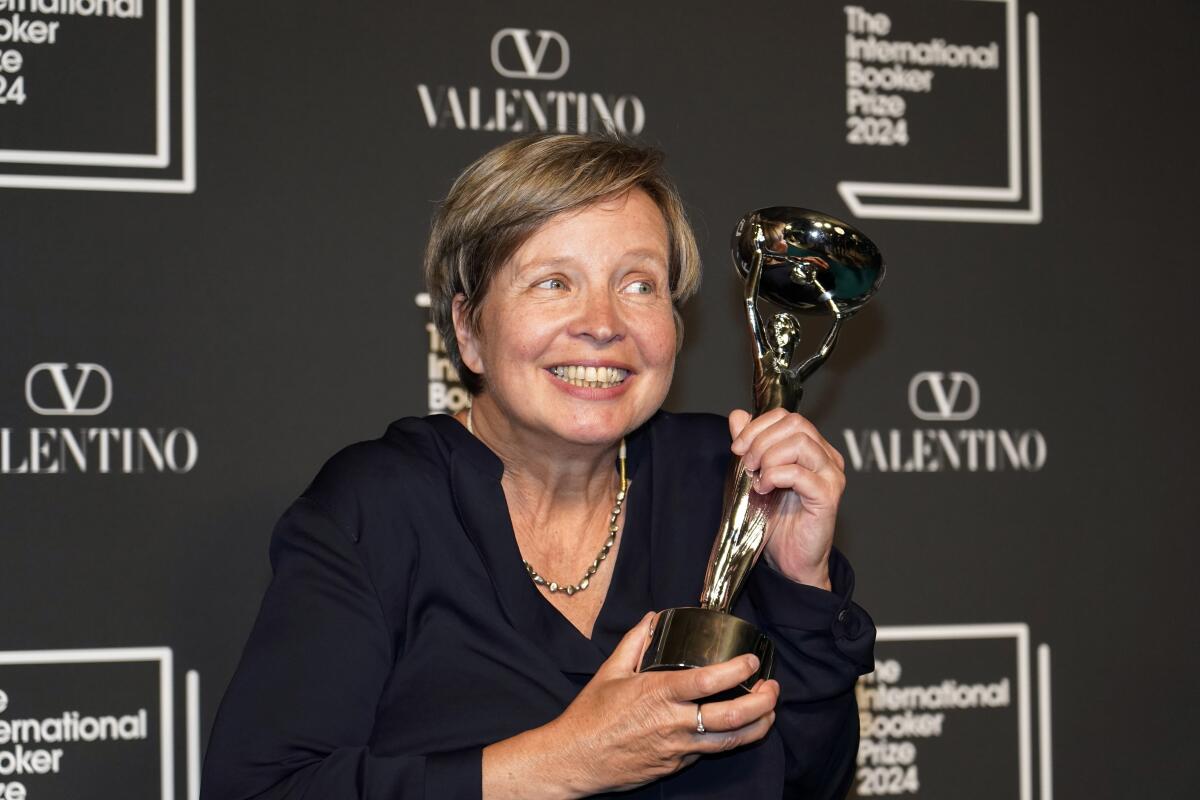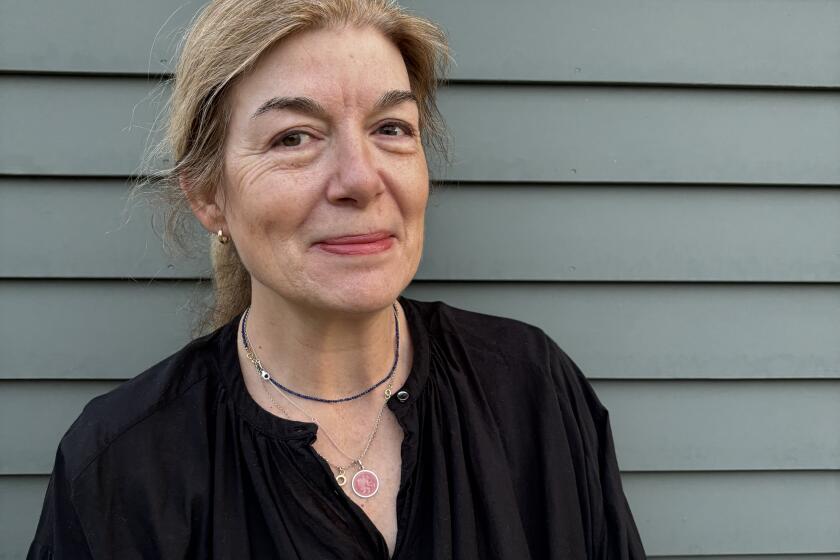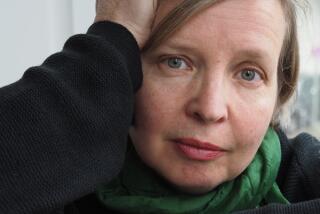German author Jenny Erpenbeck wins International Booker Prize for tale of tangled love affair

LONDON — German author Jenny Erpenbeck and translator Michael Hofmann won the International Booker Prize for fiction Tuesday for “Kairos,” the story of a tangled love affair during the final years of East Germany’s existence.
Erpenbeck said she hoped the book would help readers learn there was more to life in the now-vanished Communist country than depicted in “The Lives of Others,” the Academy Award-winning 2006 film about pervasive state surveillance in the 1980s.
“The only thing that everybody knows is that they had a wall, they were terrorizing everyone with the Stasi, and that’s it,” she said. “That is not all there is.”
“Kairos” traces an affair from utopian beginning to bitter end and draws parallels between personal lives and the life of the state.
Miranda July’s book ‘All Fours,’ about a Los Angeles woman’s reckoning with perimenopause, imagines the end of fecundity as a joyful second flowering.
The book beat five other finalists, chosen from 149 submitted novels, for the prize, which recognizes fiction from around the world that has been translated into English and published in the U.K. or Ireland. The $64,000 prize is divided between author and translator.
Canadian broadcaster Eleanor Wachtel, who chaired the five-member judging panel, said Erpenbeck’s novel about the relationship between a student and an older writer is “a richly textured evocation of a tormented love affair, the entanglement of personal and national transformations.”
It’s set in the dying days of the German Democratic Republic, leading up to the fall of the Berlin Wall. Erpenbeck, 57, was born and raised in East Berlin, which was part of East Germany until the country disappeared with German reunification in 1990.
“Like the GDR, (the book) starts with optimism and trust, then unravels so badly,” Wachtel said.
The epic, the intimate and the autobiographical meet in Claire Messud’s latest novel, ‘This Strange Eventful History’
She said Hofmann’s translation captures the “eloquence and eccentricities” of Erpenbeck’s prose.
The International Booker Prize is awarded every year. It is run alongside the Booker Prize for English-language fiction, which will be handed out in the fall.
Last year’s winner was another novel about communism and its legacy in Europe, “Time Shelter” by Bulgarian writer Georgi Gospodinov and translated by Angela Rodel.
The prize was set up to boost the profile of fiction in other languages — which accounts for only a small share of books published in Britain — and to salute the underappreciated work of literary translators.
In Craig Foster’s new memoir, the filmmaker calls on us to reclaim our wildness, even as humans don’t seem too inclined to try to reverse climate change.
Erpenbeck is the first German winner of the International Booker Prize, and Hofmann is the first male translator to win since the prize launched in its current form in 2016.
He said he felt his style complemented that of the author.
“I think she is a tighter and more methodical writer than I would be,” he said, and the English-language book is “a mixture of her order and my chaos.”
More to Read
Sign up for our Book Club newsletter
Get the latest news, events and more from the Los Angeles Times Book Club, and help us get L.A. reading and talking.
You may occasionally receive promotional content from the Los Angeles Times.











